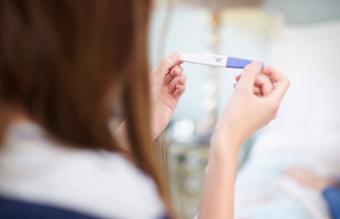
Couples and women hoping to get pregnant through intrauterine insemination (IUI) should look into IUI success rates before committing to the procedure. IUI involves placing sperm, either from a donor or the woman's partner, directly into the uterus when a woman is ovulating.
Success Affected by Infertility Cause
The success of IUI, or human artificial insemination, varies greatly. Statistics on infertile couples who use IUI show a wide range of success rates, often from approximately 4-6 to 20 percent.
One of the main factors affecting the success is the reason for infertility. It appears that IUI is more successful in the following cases:
- Male fertility issues, such as low sperm count or poor motility
- Unexplained infertility
- Mild cases of endometriosis
- Women with cervical mucus issues
Couples who use donor sperm to get pregnant may experience higher success rates if the reason for infertility is male-based.The Sperm Bank of California shows an IUI success rate of 16.3 percent per cycle.
Women who have trouble ovulating might be prescribed ovarian stimulation drugs or follicle stimulating hormones (FSH) before they undergo IUI. The use of drugs like Clomid and FSHs can positively influence the success of intrauterine insemination. Mild endometriosis and IUI treatment show higher pregnancy rates when used in combination with fertility drugs.
Provider IUI Success Rates
The clinic and doctor chosen for your treatment will affect the IUI success rates. Physicians who specialize in fertility treatments, especially IUI, will often have higher rates of pregnancy. Established fertility clinics may also have better success rates due to more experience. Timing of the insemination is extremely important in achieving pregnancy.
Get recommendations for an infertility specialist from a trusted family doctor or OB-GYN. Family members or friends who have successfully achieved pregnancy using fertility treatments are another source for finding a proper clinic and doctor. Ask the following questions when checking out clinics and physicians:
- What is the average time to conceive using IUI?
- What are the success rates of the different fertility treatments offered by you or your clinic?
- Am I/Are we good candidates for IUI, based upon our fertility problems?
- Will I/my partner need to take fertility drugs?
- Is there a support group for infertility offered through the clinic?
- Are payment plans available if insurance does not cover the cost of treatment?
Select a doctor and clinic that meet important needs, such as high success rates and offer supportive counseling. Infertility can be stressing upon individuals and couples, making a supportive environment vital when choosing a healthcare provider.
Choosing IUI Treatment
Intrauterine insemination is often one of the treatment routes recommended to couples with fertility problems. However, couples with moderate to severe diagnosis of infertility may want to consider more aggressive options from the start.
The Jones Institute for Reproductive Medicine notes that while IUI is often less than the cost of in vitro fertilization (IVF), it can take more cycles before achieving pregnancy successfully. Doctors often recommend doing IUI for three to four cycles before moving to the next step of treatment.
Couples who are not good candidates for high IUI success rates should speak with their physician about skipping IUI and moving straight to procedures like IVF. In the end, it may prove to be less costly and less stressful to undergo two cycles of IVF instead of four failed IUI cycles and then two cycles of IVF. Again, only a doctor and the patients involved can make this determination based upon each individual case of infertility.
Couples or women who cannot get pregnant due to infertility may decide that IUI is an option for getting the baby they desire. An open conversation and complete health workup with a good fertility specialist can determine whether or not IUI would prove successful for the couple in question.







